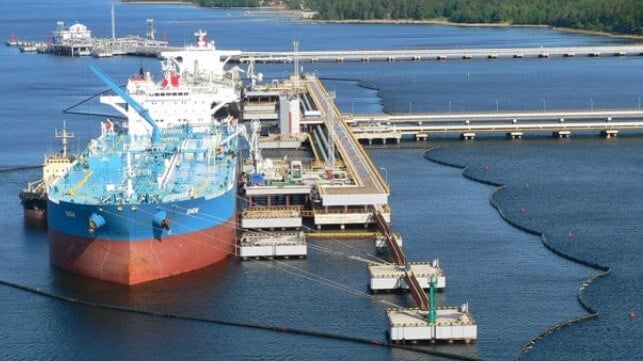Report: Russia Evades Oil Price Cap by Inflating Shipping Costs

Russia's oil exporters have been using a simple trick to circumvent the G7 oil price cap, according to a new report in the Financial Times. The FT determined that by inflating shipping fees, Russia-connected actors earned an additional $1.2 billion on oil shipments to India alone over a three-month period this year.
U.S. and EU shipping companies are allowed to participate in the transport of Russian crude, so long as it is priced below $60 per barrel. These cargoes are a source of income for some EU-domiciled tanker firms, but the cap is primarily targeted at G7-based insurers, brokers and other service providers. The vast majority of the world's marine insurance cover is provided by EU and UK companies, and by placing a regulatory price cap for insurers' participation, Western governments hoped to somewhat reduce Russia's earnings without removing Russian oil exports from the global market.
According to the FT, Russian oil exporters have succeeded in boosting the all-in net price of their crude well above the $60 cap by a simple means - exaggerating their shipping charges. By adding excess shipping and handling charges, they have been able to raise the actual delivered price far above the listed price.
The FT examined India-bound shipments out of Russia's Baltic ports for the months of May, June and July. These cargoes were carried by Russia-linked tanker companies, and price data examined by the FT showed that these shipping companies have overcharged for the carriage of the cargo. The difference amounts to extra oil sale revenue repatriated through an overseas-based, Russian-controlled tanker owner. As an illustration of the net effect, India's average price per barrel for Russian oil (freight included) was about $68 in June, well above the $60 limit.

that matters most
Get the latest maritime news delivered to your inbox daily.
Oil price cap violations have also been noted in Russia's Pacific trade. In a warning note published in April, the U.S. Treasury's Office of Foreign Asset Control confirmed reports that Russia is selling the ESPO crude grade out of the Far East loading port of Kozmino for prices above the $60 price cap. Some of these shipments involved services provided by U.S. persons, OFAC warned. A later investigation by the New York Times determined that an American insurer appeared to be implicated in several of these transactions, and that the tanker operators involved had gone to great lengths to hide their movements.
So far, there have been no high-profile sanctions cases brought against participants in the Russian oil trade, even for transactions with clear indications of price cap violations. Quietly, European commodity traders have suggested that the U.S. has encouraged them to keep dealing in Russian oil, thereby sustaining export flows and helping keep global crude prices lower.
